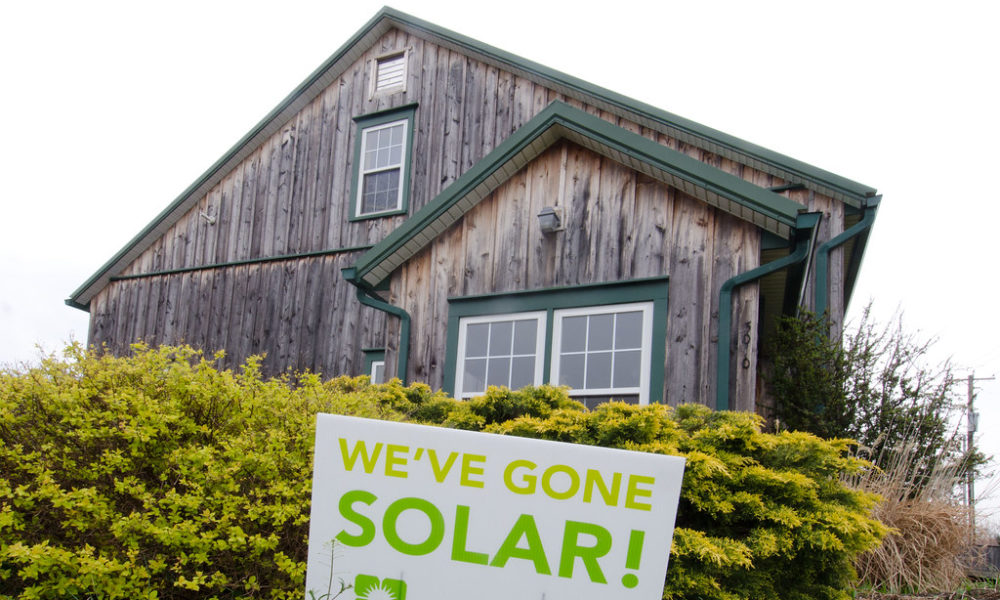Written by Josh Jay, Summer Policy Intern
President Biden signed The Inflation Reduction Act into law on Tuesday, August 16, 2022, and there is much to be thankful for in the MCE community! After weeks of negotiations, the Senate passed the bill through the reconciliation process, reducing the number of votes needed from 60 to 51. Vice President Kamala Harris cast the tie-breaking vote last Sunday. After that, it was an easy path to President Biden’s desk. The bill will put us on a path to reduce emissions up to 40% by 2030.
There are many notable wins for the climate (in Missouri and beyond) in the bill. The Inflation Reduction Act will accelerate a clean energy transition, lowering energy costs for people in Missouri and across the United States. Provisions of the bill contributing to this transition include:
- Extending clean energy tax credits by 10 years
- Making clean energy tax credits more accessible
- $9 billion in home energy rebate programs that allow low-income families to electrify their homes
- $60 billion in the domestic manufacturing of solar panels, batteries, and other clean energy technologies
- Increased access to community solar, which aims to give anyone who pays a utility bill access to solar electricity
The Inflation Reduction Act also seeks to transition the transportation sector away from fossil fuels. This sector is the largest contributor toward carbon emissions, and, in an attempt to combat that fact, the bill includes the following:
- $3 billion for the U.S. Postal Service to electrify its fleet of more than 217,000 vehicles, the largest government fleet in the nation.
- $1 billion for clean school and transit buses, garbage trucks, and other heavy-duty vehicles, prioritizing communities overburdened by air pollution.
- $3 billion to clean up air pollution at ports by installing zero emissions equipment and technology
- Tax credits for electric vehicles (discussed in detail below)
Communities of color and low-income communities in Missouri face disproportionate harms from pollution and the climate crisis. The Inflation Reduction Act attempts to combat such inequality with the following:
- Providing $3 billion for community-led projects in areas facing the disproportionate effects of climate change
- Including $315.5 million for air monitoring so that communities know exactly what’s in the air they breathe, with specific funds for schools and those living near polluting industries
- Reinstating the Superfund excise tax on crude oil and imported petroleum products in an attempt to place economic responsibility of environmental harms on corporations
Members of MCE are all too familiar with the impact industrial agriculture has on the climate crisis. The Inflation Reduction Act attempts to advance environmentally friendly farming practices with:
- Over $20 billion to help farmers and ranchers shift to sustainable practices like crop rotation and cover crops
- $300 million for research into the climate impact of agricultural practices
Other miscellaneous provisions attempting to fight the harmful effects of climate change include:
- $250 million to implement endangered species recovery plans and address climate change impacts on key habitats
- $2.6 billion in coastal resilience grants to fund projects protecting and restoring coastal communities and ecosystems
- $50 million to advance protections for mature and old-growth forests
Besides the overall environmental benefits resulting from the bill, the Inflation Reduction Act also has individual economic benefits Americans can take advantage of, including:
- A 30% tax credit for installing residential solar panels*
- A tax credit of up to $7,500 for purchasing an electric vehicle*
- A tax credit of up to $14,000 for home energy efficiency upgrades, including up to $8,000 to install a heat pump*
*Individuals choosing to utilize these provisions can save up to $1,800 a year in energy costs.
However, compromise was necessary to pass the Inflation Reduction Act, and the bill is far from perfect. Some of the concessions in the bill include:
- Tax credits for carbon capture and sequestration
- Mandated oil and gas development in parts of the Gulf of Mexico and Alaska’s Cook Inlet
- Requiring additional oil and gas leasing in order for new wind and solar projects to be approved
Nonetheless, the Inflation Reduction Act is a step in the right direction in environmental policy and we at MCE are grateful for this monumental piece of legislation.

